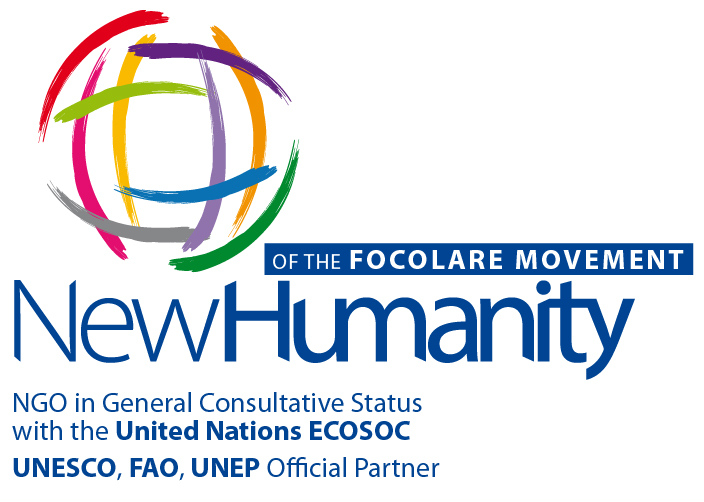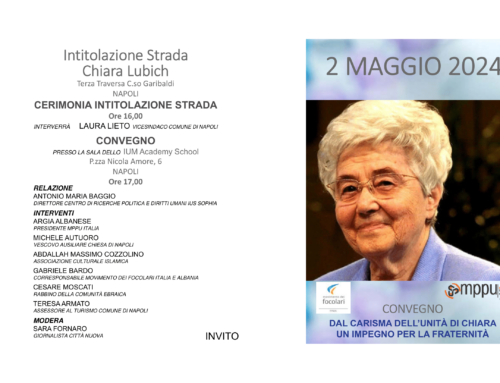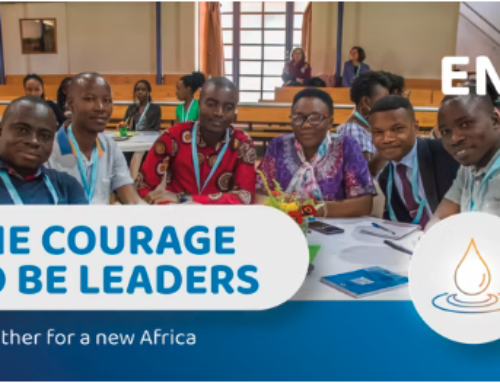As part of the International Online Seminar of the Politics for Unity Movement (MPPU) “Politics and Policies for Unity in the Times of Global Change: Ideas, Commitments, Contributions” that took place on December 10-11, 2020, a dialogue was held on “The proposal of the charism of unity to politics. Unity as an end and as a method”. The two speakers were Pasquale Ferrara (Italy) and Javier Baquero (Colombia).
We report below the speech of Pasquale Ferrara.
Pasquale Ferrara, Italy
The pandemic has mercilessly exposed the fractures and fragmentation of world politics. As a first step, we must be able to recognize that fractures and fragmentations are in turn connected to the contradictions and inconsistencies of political power (at all levels, local, national, global).
First, power has difficulty articulating itself between the local and global dimensions. The paradox is that the political dimension becomes narrower and more enclosed, but the issues before us are transnational by definition (i.e. they go well beyond national borders) and become difficult to address and resolve. Ulrich Bech argued that world politics has become world domestic politics. The consequences of this new condition are profound, and should lead to a reformulation of the foundations and processes of political life at the local, national and international levels. It is not enough, today, that international politics becomes transnational, that is, it takes place largely across the borders of states. Finance and organized crime are also transnational. The important thing is the focus. Rather, we need to talk about panhuman politics, that is, a politics that, without being content to be simply humanitarian (which is already a lot), involves humanity as such: peoples, men and women, real people. Let’s think of the Syrian refugees arriving at the Milan train station: they are not welcomed by the UN Secretary General, but by the City Councillor for Social Policies. Let’s think about climate change: natural disasters affect concrete territories, not the earth as an abstract entity. But let’s reverse the saying of globalization: act locally, think globally, but think locally, act globally.
Second, power fails to combine the common good with the common goods. Conceptions of power today are increasingly divided between the idea that it should serve to ensure the “common good” (what is good for a society from different and often opposing ideological viewpoints) and the conception of it as a tool to provide the “common goods” (what is right for a society) in very concrete terms (e.g., water, food security, environmental balance). On the one hand a normative approach, on the other a pragmatic approach. But this is perhaps an artificial juxtaposition. One wonders if there is a point of balance in the exercise of power in an increasingly complex social reality. Power could perhaps take on the function of signaling society’s priorities toward the excluded and the new poor, of forming the agenda, of mobilizing all resources to respond to needs, instead of thinking that it can solve issues directly and autonomously.
International security (understood in the military sense, even when it comes to defense) cannot contradict human security. We must “disarm” the idea of security. Let’s think, for example, of food security: being able to give everyone food. Or health security. Or the security of being able to work and live honestly. Allowing everyone to imagine their future and plan their lives beyond mere survival. The pandemic has made it clear that politics, especially international politics, is always ultimately bio-political, because it can make the difference between life and death, between health and disease. Therefore, in addition to the United Nations Security Council (to be profoundly reformed in a “continental” sense, as we will discuss below), we should imagine a Human Security Council: we could say, with a slogan, from warfare to welfare. A Council formed not by states, but by the major international agencies that deal concretely with people’s lives, such as FAO, UNICEF, WFP, WHO, the United Nations High Commissioner for Refugees, the World Organization for Migration, the International Labor Organization, etc.. Imagine the role this body would have played in the pandemic. Wanting to broaden the horizon, we have to admit that politics is facing a paradigm shift of a planetary kind. Politics is no longer just about humanity, but about humanity in close relationship with planet Earth. Preserving the quality and integrity of the environment is not an ecological exercise, it is a political issue and an ethical issue, it is about respect for the planet and respect for the men and women of the future. Preserving the oceans and forests, these two eco-systems essential for life on earth as a whole, is also a concrete way of loving other people’s countries as our own: this planet is our shared homeland!
On a pragmatic level, the idea of planetary justice (which concerns not only climate change, but also the preservation of biodiversity as well as all other natural resources) is still struggling to make its way. Faced with the planetary proportions of dramatic environmental events, and the irreversible damage caused not only to the world as such but also to the different common worlds it contains, some scholars have suggested the configurability of “crimes against biodiversity” and “ecocide”.
What the pandemic has taught us is that the positive potential of an ever closer interconnection between the issues of climate change, energy security (in terms of sustainability, efficiency and savings) and health emergencies should be fully explored. A circular economy necessarily requires a circular policy, i.e. a policy of expanded representation and a policy capable of integrating sustainability at all levels and in all its choices.
The new condition of the world requires us, for example, to rethink the very idea of democracy, which should also include forms of responsibility and representation towards the non-human components of the planet (animals, plants), as they are also part of a socio-natural complex in which the human being is immersed not in a hegemonic position but in that of responsibility and care.
One might be tempted to feed yet another project of planetary utopia. We need concreteness. There is a powerful verse by the Polish poet Wisława Szymborska: “I prefer me who loves people, to me who loves humanity”. What is needed is hic et nunc attention to physical, present, living, needed people, not an abstract impulse toward humanity as a categorical entity.
Even eminent political scientists now speak of the need for a “microfoundation” of international politics, in the sense that even this dimension, which might appear beyond the reach of our daily existence, requires an analysis that reconstructs the choices, actions and interactions of the people involved. The secret of universality lives in proximity, “because in it we experience the quality of fraternal coexistence, grasping the only authentic measure for interhuman relations at all levels, up to that of globality.”






